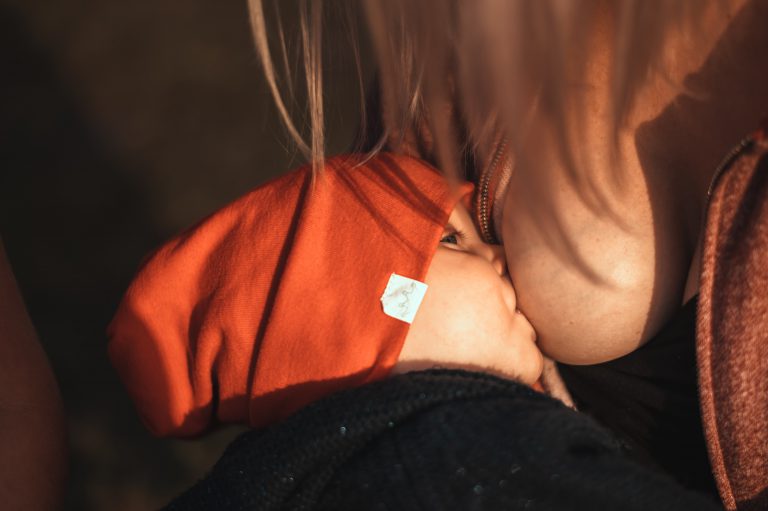Post Natal

Gemaakt door Kevin Liang
Do you feel that something just isn't right...that you just don't feel yourself?
Could post-natal depression be a possibility?
Depression is often considered in terms of mild, moderate and severe.
Mild depression is diagnosed if you have 'low mood' or ‘loss of interest or pleasure' in your relationships and surroundings and three of the other symptoms. However, if you have mild depression you are probably able to carry out your every day activities..
Severe depression is diagnosed if you have ‘low mood' or ‘loss of interest or pleasure in your relationships and surroundings and also have 7 or more symptoms. Sometimes slowing down of your movements and speech. Someone who has a severe depression will be in a highly dysfunctional state, not be able to carry out their every day activities and often have distressing feelings of worthlessness and guilt, they may also have suicidal thoughts.
Severe depression is diagnosed if you have ‘low mood' or ‘loss of interest or pleasure in your relationships and surroundings and also have 7 or more symptoms. Sometimes slowing down of your movements and speech. Someone who has a severe depression will be in a highly dysfunctional state, not be able to carry out their every day activities and often have distressing feelings of worthlessness and guilt, they may also have suicidal thoughts.
Symptomen:
– Low mood
– Loss of interest or pleasure in your relationships or surroundings.
– Constantly feeling tired. No energy ( NB: ask your GP about a thyroid function blood test and a full blood count to rule out anaemia or hypothyroidism)
– Sleeping problems - can't get to sleep or waking in the early hours and not being able to get back to sleep – Crying a lot, often over the smallest things or for no reason at all
– Can't eat or over-eating
– Physical aches and pains, such as headaches, stomach pains or blurred vision and worrying that it is something terminal or serious
– Lack of motivation to get up and do anything , feel things are piling up around you.
– A constant underlying sense of anxiety maybe escalating into panic attacks. Easily "set off" and difficult to calm down
– Difficulty concentrating, say on a book or film or even on a conversation
– Putting on a front. Feeling like you are playing out a role rather than just living the moment
–Feeling lonely and isolated. Perhaps feeling rejected by friends, family, even your partner and your baby or children. Or avoiding going out and meeting people.
– Sense of feeling overwhelmed and unable to cope
–No interest in sex
– Feeling guilty about everything - especially wondering if you are being a bad mother
–Overly anxious and over protective of your baby
– Feeling emotionally disconnected from or even rejected by your baby.
– Strange, frightening thoughts or visions popping into your head about harming yourself or the baby or awful things happening
Other things that may help are:
- Keep a record of when you are feeding the baby and when the baby has pooped or urinated in a notebook or the maternity file.
- Try to sleep when baby is sleeping
- Don't make too many appointment or very long ones.
- Very important to get back into shape after delivery
- Drink a lot of water. This is necessary for breastfeeding, replenishing blood lost during delivery and it reduces pain when urinating.
After your delivery it is normal for you to expericence pain in the your pelvis. To help this pain you can do some exercise to relive the pain. We do however advise you to see you GP if after seral monthes you are stil in pain.
Kegels (Pelvic Floor Exercises) Kegel exercises strengthen the muscles of the pelvic floor. These muscles are weakened by the birth process and should be exercised immediately after birth. However, it may be somewhat difficult to do these exercises soon after your delivery; do as many as you can and gradually the tone will return.
-Squeeze the pelvic floor muscle for three seconds, relax the muscle for three
seconds, then squeeze again. seconden, dan weer knijpen.
-Begin with 10 three-second squeezes, three times a day. Increase repetitions
gradually. geleidelijk.
Work up to doing 50-100 kegels each day.
Abdominal Strengthening
Do each exercise one to two times each day with three to five repetitions.
Pelvic Tilt
-Lie on your back, with your knees bent.
-Tighten your stomach and buttock muscles.
-Allow your pelvis to tilt upward.
-Flatten the small of your back against the floor as you inhale.
-Hold for a count of five.
-Relax and exhale.
X Repeat three to five times.
CAUTION: DON'T arch your back, bulge your abdomen or push with your feet to obtain this motion.
Abdominal Breathing
-Lie down on a comfortable surface with your knees bent.
-Relax your body as much as possible, allowing your weight to sink into the
surface on which you are lying. oppervlak waarop u ligt.
-Gently put your hands on your abdomen, close your eyes and begin to noticeyour breathing. Feel your hands rising as you inhale and falling as you exhale.
-Inhale, abdomen and hands rise upward; stretch your abdominal musclesoutward. Hold for a count of five.
-Exhale, abdomen and hands fall downward; pull in your abdominal muscles. Hold for a count of five. Repeat three to five times.
Ankle Circles (To enhance circulation)
-Make 10 circles with your ankles clockwise and counter-clockwise.
-Do the ankle circles in different positions such as sitting, lying down, etc. Repeat circular pattern three to five times.
Add the Leg Sliding exercise and the Arm & Upper Back Stretch Exercises to the previous exercises.
A few more things about the baby:
Heel Prick (PKU):
Vitamin K en D
Wellbaby Clinic (Consultatiebureau)
Registering your baby
Follow-up information
Breastfeeding

Breastfeeding makes an important contribution to the well-being of mother and child. Breastfeeding ensures an optimal physical condition for the baby, it is healthy for the mother and always fresh, free and easy. Healthcare also benefits from a successful breastfeeding period: breastfed babies are generally less frequent and less seriously ill, even later in life.
For more information about the importance of breast milk: click here
Contraception
- So during your pregnancy contraception can come to mind. We will discuss it during your post partum and when we come for your home visit. Together with midwife will be able to give a receipt for your contraception that is easy for you. There are usually two options; hormone of IUDC which we will have to make an appointment. - Further information about the different kind of contraception can be found:Only in Dutch https://deverloskundige.nl/net-bevallen/tekstpagina/40/anticonceptie of op www.anticonceptie.nl, www.nfp-nederland.nl, https://ladycomp.nl/hormonen
